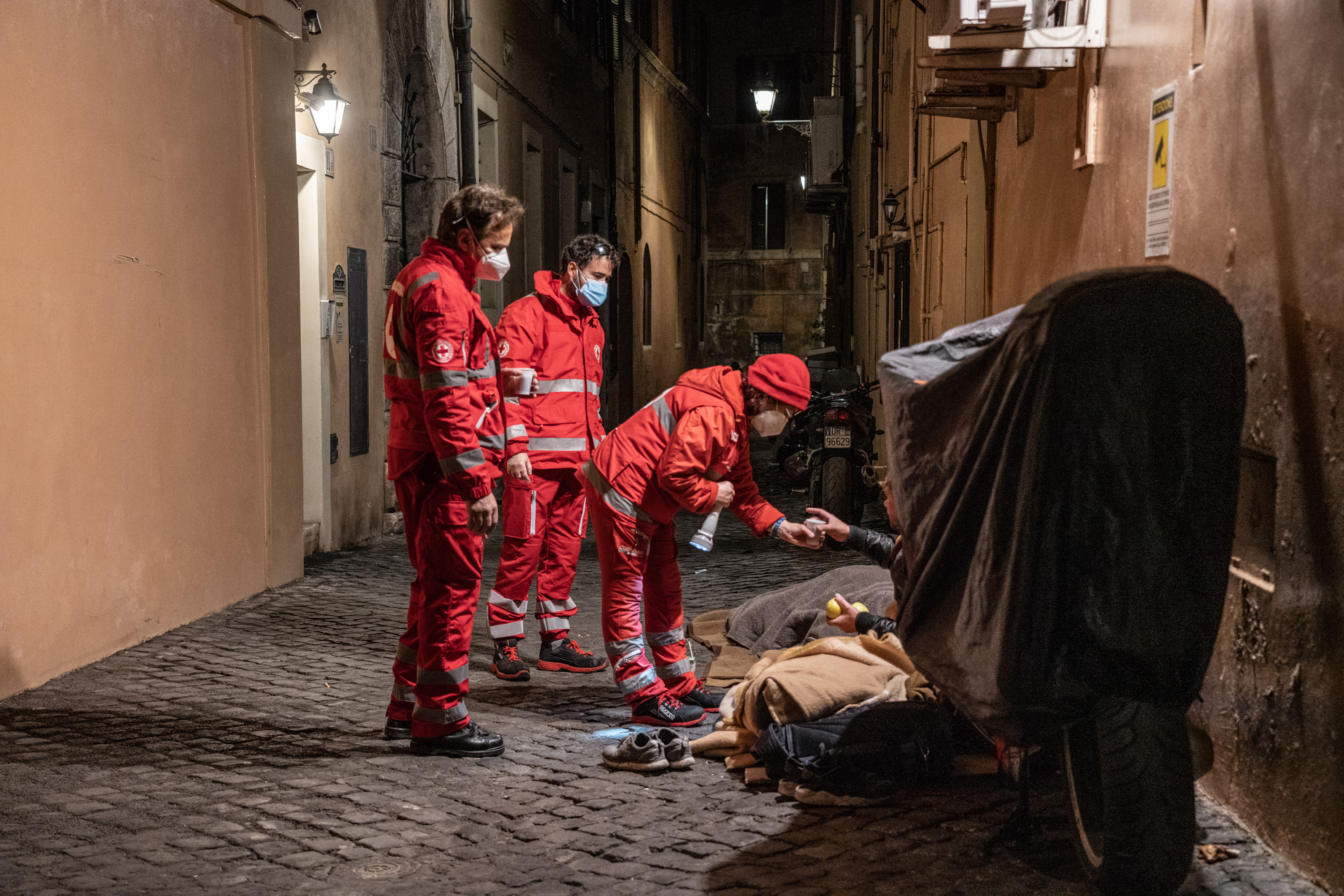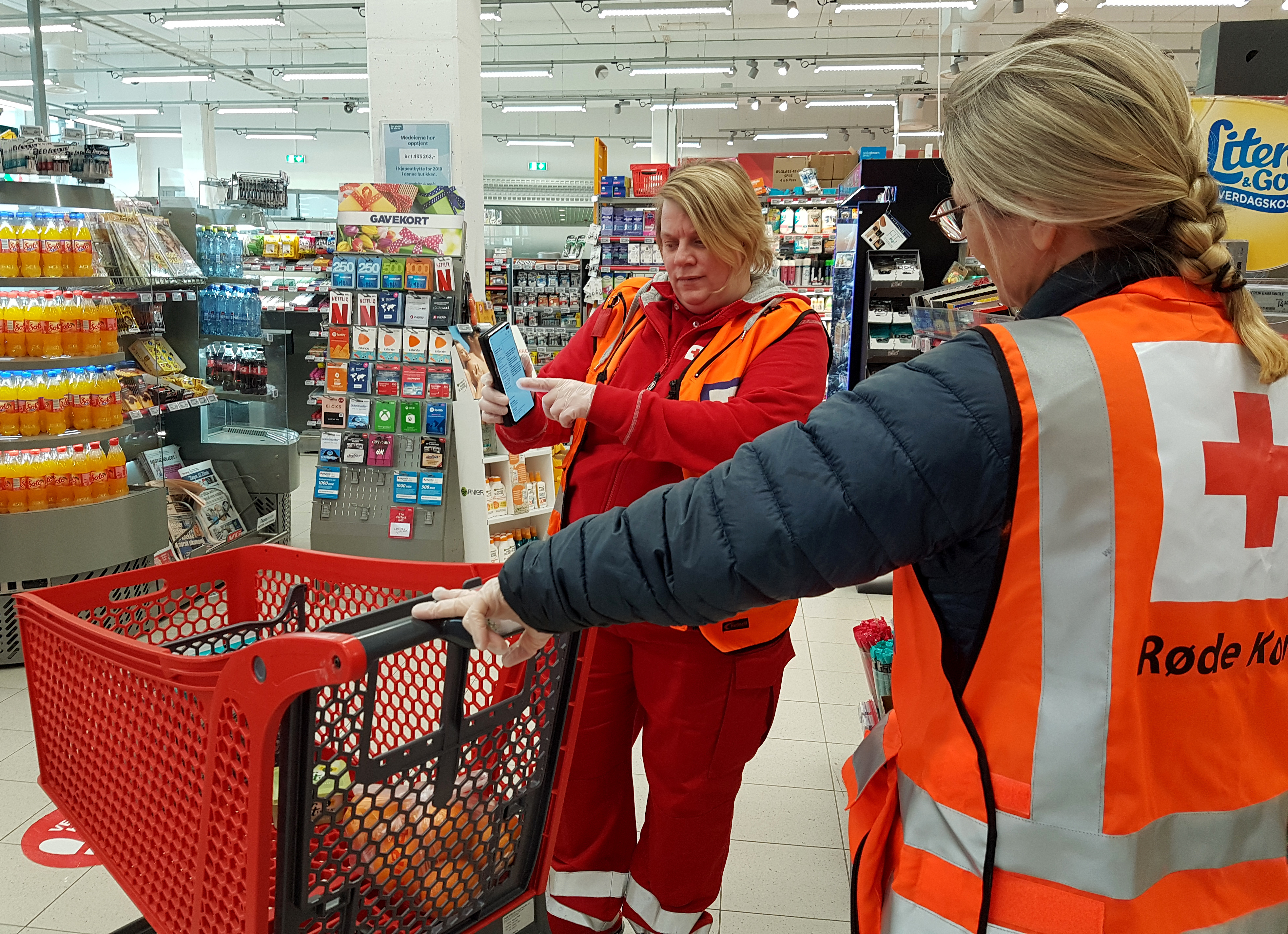Covid 19 conversation: new types of poverty are emerging
In this series of articles, we interview representatives of different National Red Cross Societies, one pair at a time, to learn more about the impact of COVID-19 on their work, and ways forward.
In November, we had a chat with:
- Paola Salerno
Head of Social Inclusion Unit, Italian Red Cross
- Karin Afeef
Head of Unit, Humanitarian Programmes, Norwegian Red Cross
In retrospect, how did you experience the beginning of the pandemic? How did the work of your department change in response to it?
Paola Salerno (Italian Red Cross)
Italy was the first western country to be hit by the pandemic. The country went into lockdown in March, and from that moment on, we started to rethink our work. Our emergency service was flooded with calls. At the beginning, people were mainly asking for information, as the official national numbers were clogged, so citizens called the Italian Red Cross to understand what was happening and get medical advice. We immediately understood that the situation was serious.
At the beginning of the crisis, the pandemic mainly affected the north of Italy, but the effects were felt throughout the country and generated great insecurity everywhere. Throughout the last year, the Italian Red Cross has continued to provide pre-pandemic services, such as food parcels. One of the pandemic’s major impacts was on volunteering; given the increased risks faced by older people, we asked some of our usual volunteers to stay at home. This led us to activate a temporary volunteer programme to recruit new volunteers, which resulted in about 60,000 volunteers, the majority of which are between 18 and 52 years old.

Karin Afeef (Norwegian Red Cross)
At first, the pandemic seemed very far away to us, all the way in Asia. The week before the lockdown in Norway, we were getting on with business as usual. Only a few days later, we went lockdown. Fortunately, we were not facing a similar scenario to other, more severely affected countries. Here too, the pandemic impacted our older volunteers, who represent a large section of our volunteers, especially in rural areas. However, we did not feel that we were hit hard enough to activate a wide-ranging temporary volunteer programme.
What are the most pressing issues now? How is your National Society approaching them?
Paola Salerno (Italian Red Cross)
Mental health issues have affected the whole population, not only the most vulnerable, for many different reasons. Some people lost their jobs, others lost family members without the chance to meet them one last time before they died. Nurses and doctors found themselves in situations that they couldn’t process. Furthermore, there has been an increase in violence against women during the pandemic – an increment of 71.7% comparing March-October 2019 with the same period in 2020 - because with people spending more time at home, women in situations of domestic violence have been more exposed to the perpetrators. For the same reason, it has become harder to denounce the violence and seek help. Homeless people are among the most affected groups. At the moment, a project, called “Housing First”, is being implemented by the local Red Cross committee in Campania. This project has a different approach to poverty reduction, where the first thing that is addressed is the lack of housing. For the time being it is a pilot project, but the Italian Red Cross would like to invest in this approach.
Karin Afeef (Norwegian Red Cross)
Currently we are concerned about the long-term mental health toll that COVID has on different groups in society. We are particularly concerned about youth and young adults, as new data shows that they seem to be quite badly affected by COVID restrictions. During lockdown we were very concerned about children who live in homes where there is not enough space, or where they risk being abused by their parents, without the possibility of communicating with the outside world.
Another problem that we observed in the first phase of the pandemic was that staff working in children’s welfare services, such as school nurses and staff at health clinics for children, were shifted to the COVID-19 emergency response, undermining regular health services to children and youth. However, now the government has made it clear that such staff will not be transferred to the COVID-19 emergency response. We are working not only on the more visible needs like shelter, food, testing and vaccination, but we are also working a lot on all the invisible needs, especially mental health. These are the kinds of problems that are likely to be the most challenging in the long term. Also, people in institutions - like prisons or old people's homes - are suffering in silence.

What will the ‘new normal’ look like for your activities? How will you ensure care for those most affected by the crisis in the long-term?
Paola Salerno (Italian Red Cross)
We have to focus on the new types of poverty that are emerging. The profile of beneficiaries has changed during the pandemic. There are people who lost their jobs and didn’t find a new one yet. Furthermore, many people with undeclared work lost their income without receiving any support from the State. In the future, we will need to develop new poverty indicators to monitor how this situation is evolving. The Red Cross is responding by providing both immediate solutions, such as food and clothing, together with longer-term solutions, such as housing or training.
Karin Afeef (Norwegian Red Cross)
We are trying to guarantee both the activities in local branches and the safety of our volunteers. This is because some of the activities are carried out by older volunteers that cannot be exposed to the increased risk of complications if they infected with COVID-19. Since this crisis is not likely end in the near future, our challenge is how to ensure volunteer safety and the continuity of Red Cross activities, which are very important services in many cases.
For media inquiries, please contact Eva Oyón on: eva.oyon@redcross.eu or +32 2 235 09 22

